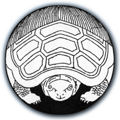These days I’ve been reading USA Today. It’s what shows up in front of my hotel room door every morning, no matter what city I’m in. On April 1, April Fool’s Day, the paper ran an article entitled, "Four-fifths of U.S. soybean crop is now bioengineered.” I had missed this article, but a kind woman in Wichita clipped it for me and gave it to me after the reading. I was glad she did.
In “All Over Creation,” my character Geek, a fervent environmental activist, rails, "Kids, did you know that more than half of the soybeans planted in America are genetically engineered? And a third of the corn too..."
When Geek said this, in 1999, the percentage was about 54%. The USA Today article reports, "A full 80% of this year's U.S. soybean will be planted in bioengineered seed, according to a U.S. Department of Agriculture survey released Monday. Biotech corn plantings now comprise 38% of all corn planted in the USA. Biotech cotton is holding steady at approximately 70%."
As Geek's spokesperson out here in the "real" world, I'm pointing out these increases because he can't, in order to express his concerns and assuage his frustrations. The problem with being a fictional character in a novel is that, once written, you are fixed in time, and you have to rely on your author to stay current—an unsatisfactory situation all around, given how unreliable and out-of-touch writers of fiction can be.
Critics sometimes accuse novelists of putting our opinions into our characters’ mouths. These critics do not understand the creative process at all. As you can see, it is quite the opposite. I speak for Geek, not the other way around. Through me, Geek says things like,
“Genetic engineering is changing the semantics, the meaning of life itself. We’re trying to usurp the plant’s choice. To force alien words into the plant’s poem, but we’ve got a problem. We barely know the root language. Genetic grammar’s a mystery, and our engineers are just once click up the evolutionary ladder from a roomful of monkeys, typing random sonnets on a bank of typewriters.”
I do not believe this. Having spent time with a number of scientists doing this kind of research, I can tell you that they are nothing like a roomful of randomly typing monkeys. They are very smart, very concerned, very impassioned truthseekers, albeit a bit cut off from reality, which is what happens when you are a research scientist working in a lab. I don’t fault them for this. I’m a novelist, and I spend most of my time cut off from reality, too.
The difference between me and them, however, that as a novelist, the sequestration of my work from reality is unbreachable. No one is going to take my ideas, the results of my research, and actually make them manifest in the real world. And as a result, there’s a limit to the amount of damage I can do. There’s no such thing as “applied” fiction.
But wait. Clearly I’m wrong. Look at the Bush administration’s tales regarding Iraq, and the fantastic narratives that have been constructed by White House spin doctors. Isn’t this applied fiction at its most extreme? Apparently there is no limit at all to the damage that can be done.
